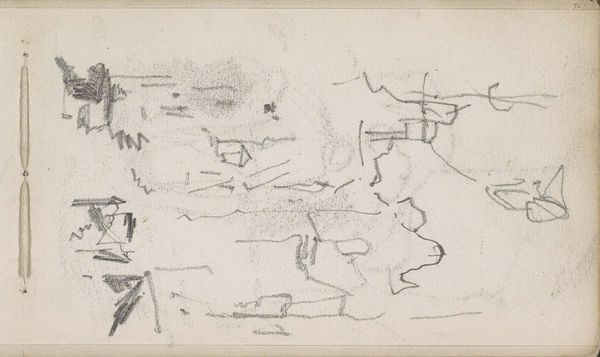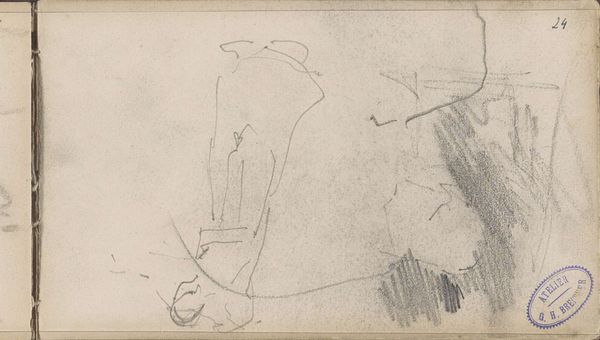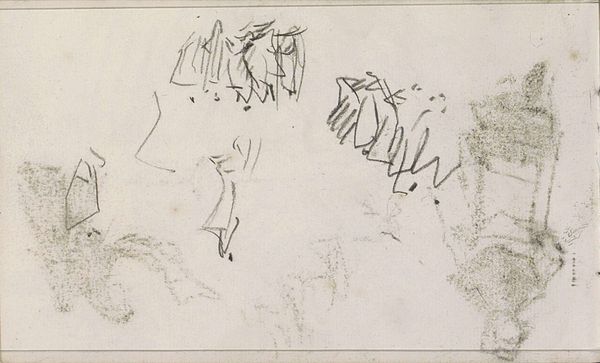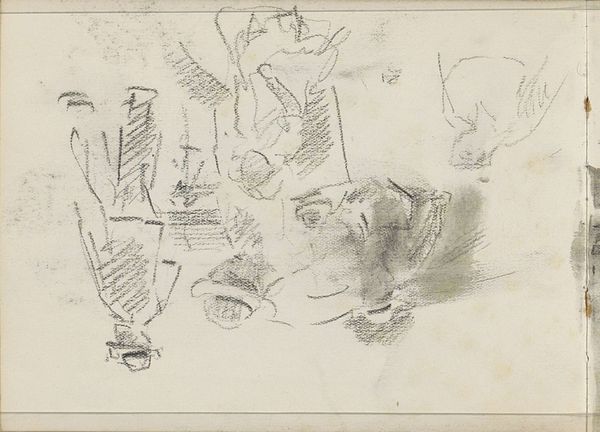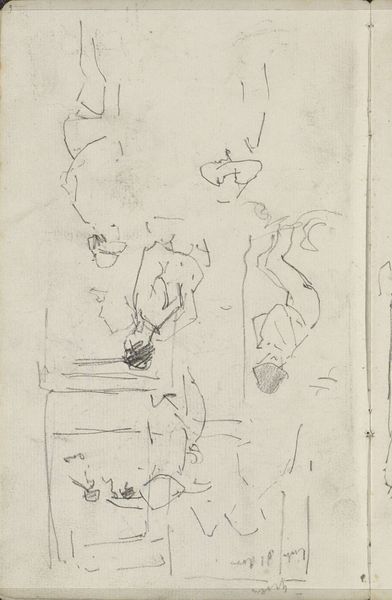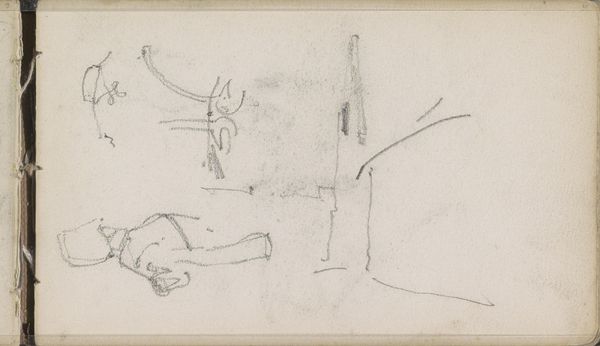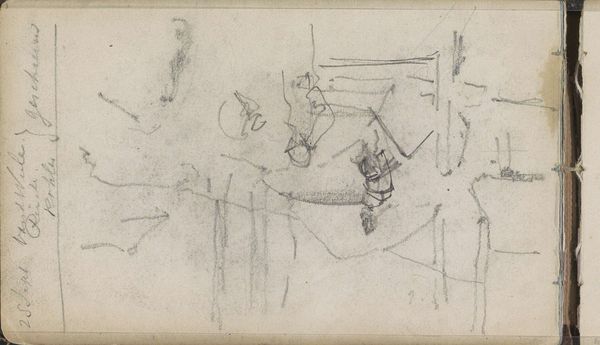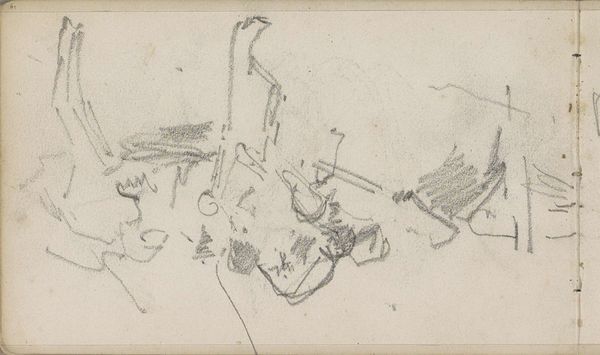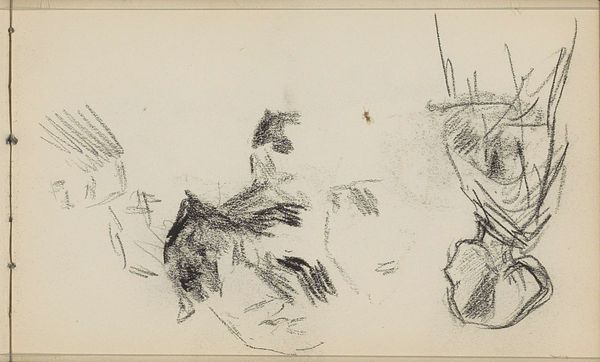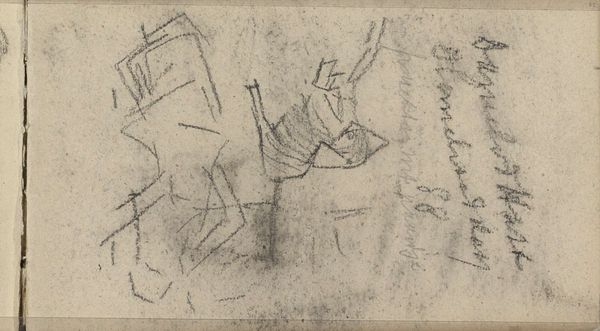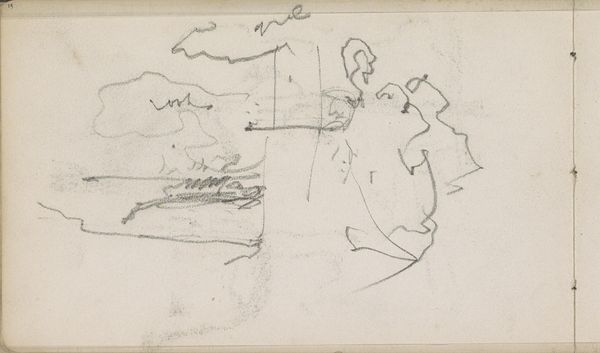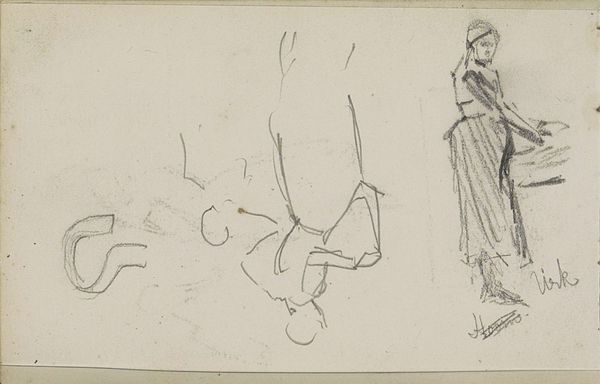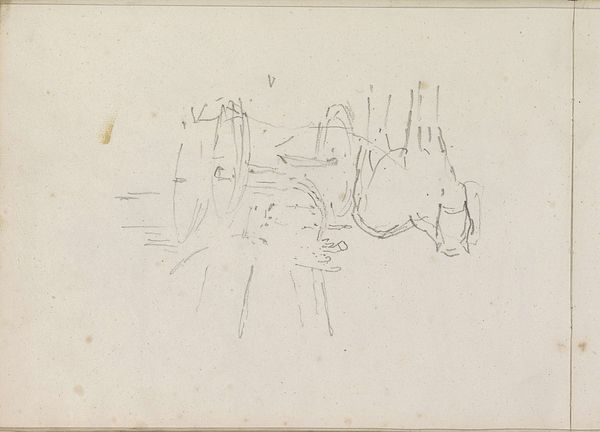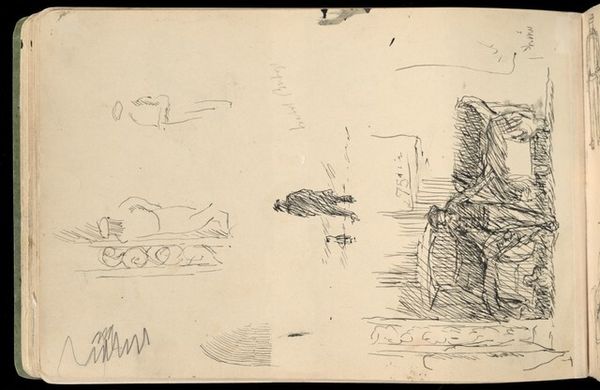
drawing, graphite
#
portrait
#
drawing
#
figuration
#
graphite
Copyright: Rijks Museum: Open Domain
Editor: We’re looking at “Figuurstudies,” or “Figure Studies,” by Isaac Israels, made sometime between 1875 and 1934. It’s a graphite drawing housed here at the Rijksmuseum. The marks are so raw, like fleeting thoughts captured on paper. What do you see in this piece? Curator: I see a kind of visual shorthand, a private language between the artist and the figures he's sketching. Israels isn’t just capturing appearances, he is also exploring gesture. Notice how the stark contrast pulls the viewer toward certain shapes first, like faces or hands. The negative space implies an environment without defining it, which pulls forth the essence of being and interacting. Does that make you think of any historical archetypes, either stylistic or figural? Editor: I hadn’t thought of it that way. The emptiness definitely enhances that sense of introspection, a real examination of form and humanity stripped down to the very basics. So much is not explicitly stated! I wonder what motivated the artist in this choice. Curator: Perhaps a sense of the fragmented nature of memory itself? Think about it. Aren’t our memories often incomplete sketches, certain moments or feelings vividly present while the rest fades? It also suggests that these figures have psychological states beyond those observable, as well as social memories within the society from which they were taken. What could Israels be implying here, if you are to speculate? Editor: That’s fascinating. It makes the work feel so much more contemporary, like a glimpse into someone’s subconscious, a projection. This changes my viewing dramatically; thanks. Curator: My pleasure! And indeed, visual language can evolve over time, imbuing images with meanings specific to certain cultures and time periods. Think on this piece – I wonder how its impact will further evolve.
Comments
No comments
Be the first to comment and join the conversation on the ultimate creative platform.
